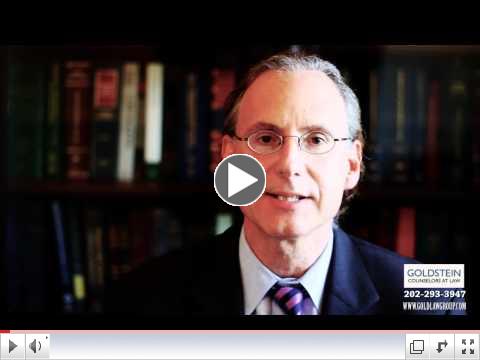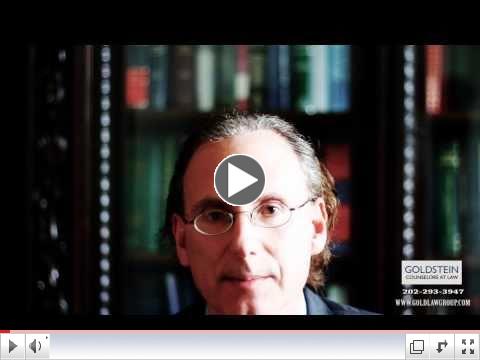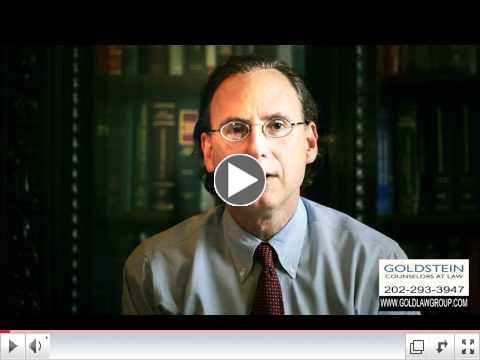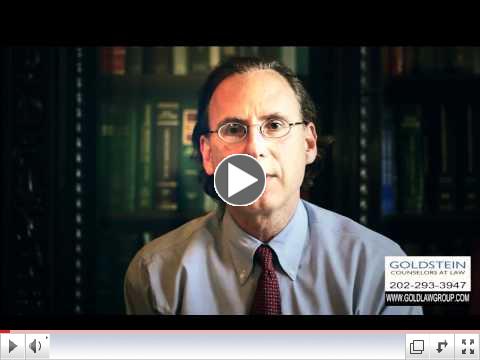|

 | |
Jeff Goldstein GOLDSTEIN LAW GROUP Nat'l Franchise Law
|
 | |
Franchise Discrimination - Video 1 of 2
|
 | |
Franchise Discrimination - Video 2 of 2
|
 | |
Franchise Law: Fraud and Good Faith in Franchise Law
|
 | |
Franchise Law -- Franchisees' Franchise Termination Damages
|
|
 |
H&R Block's
Post-Term-Covenant Case Removed from its Backyard
H & R BLOCK TAX SERVICES, Plaintiff, v. KRUEGER, Defendant. United States District Court, W.D. Missouri, Western Division.
Plaintiff (Block) sued in its home state to enforce a non-compete agreement protecting its new, replacement, Franchisee in a town in North Dakota. Defendant Krueger, a long-time employee of the franchise, whose most recent franchise agreement was executed in 2004, became a 20% minority stockholder in a corporation that was assigned the franchise in 2010. At that time she signed one of the assignment documents as an "associate" (employee) and agreed to comply with provisions of the franchise agreement that related to associates-most notably a non-compete provision. After a disagreement with the majority stockholder, Ms. Krueger left the business and set up a competing tax-preparer business nearby.
Block sought to enjoin defendant in litigation it filed at its home office, relying in large part on a provision of the franchise agreement that authorized it to litigate with Franchisees in Missouri. Defendant moved to dismiss, contending the court had no personal jurisdiction over her neither as a former associate nor Franchisee. Block relied largely on its reading of the franchise agreement, but further contended that the general laws relating to service of process in foreign states justified bringing defendant before the courts of Missouri. Rejecting Block's argument, the Court concluded that defendant's status did not rise to the level of being a Block Franchisee, that the franchise agreement did not waive objections by ordinary employees (associates) to long-distance litigation, and that the course of conduct described did not, as a matter of Due Process, allow Block to force defendant to defend herself in Block's home-state court. The court therefore dismissed Block's case over the associate for lack of personal jurisdiction.
|
 |
Best Western Franchisee Wins and Loses - Fails to Present Evidence of Bad Faith
BEST WESTERN INTERNATIONAL INCORPORATED, Plaintiff-Appellee, v. AV INN ASSOCIATES 1, LLC, Hooshang Harooni, Defendants-Appellants. United States Court of Appeals, Ninth Circuit.
Plaintiff Best Western sued Defendants Hooshang Harooni and AV Inn Associates 1, (collectively, Harooni) for breach of contract relating to Harooni's recently terminated Best Western membership. Harooni individually counterclaimed for breach of contract, breach of implied contract, and breach of the implied covenant of good faith and fair dealing.
The Court of Appeals agreed with Harooni who argued that the district court erred in holding that Arizona corporations law did not require Best Western to hold a "fair" pre-termination hearing. The district court had purported to apply a provision of the corporations law that the Court of Appeals ruled was not relevant to the Franchisee's claim. In so concluding, the Court of Appeals identified a different provision of the state statute that required corporations to terminate members pursuant to any procedures set forth in the corporation's governing documents or in an agreement between the member and the corporation.
In this regard, Best Western's Members' Bill of Rights states that each member of Best Western shall have "[t]he right to continue membership in Best Western except where termination or cancellation is provided for pursuant to the fair application of established Bylaws and Rules and Regulations, which shall provide that cancellation may not occur until after a hearing before the Board of Directors, if requested by the member." Contrary to the District Court, the Court of Appeals therefore concluded that the relevant statutory provision did require Best Western to hold a "fair" pre-termination hearing, which the Franchisee contended it did not receive.
The problem for the Best Western Franchisee in this case, however, was that he did not present any evidence that his pre-termination hearing was unfair, nor did he cite any evidence in the record that raised a genuine issue of material fact as to the hearing's fairness. Harooni was not, for example, thwarted in any attempt to present witnesses or documents supporting his position. Summary judgment dismissing the Franchisee's claims was therefore appropriate.
Harooni also maintained that Best Western terminated his membership in bad faith, using his failed inspections as a pretext for the termination. Rejecting the Franchisee's argument, the Court of Appeals held that, contrary to Harooni's submission, Best Western's exercise of discretion in conducting the inspections does not itself demonstrate the existence of bad faith. In so concluding, the Court of Appeals quoted another court stating that "The good faith performance doctrine may be said to permit the exercise of discretion for any purpose-including ordinary business purposes-reasonably within the contemplation of the parties." Thus the Court of Appeals dismissed all of the Best Western Franchisees claims against Best Western.
|
|
GOLDSTEIN LAW GROUP, PC
JEFFREY M. GOLDSTEIN, ESQ.
www.goldlawgroup.com
202-293-3947
|
|
 |
Cousin Subs Franchisee Uses Unique Law to Hold Fraud Claims in Court
COUSIN SUBS SYSTEMS INC., Plaintiff, v. BETTER SUBS DEVELOPMENT INC., Defendants. United States District Court, E.D. Wisconsin.
Cousins Subs sued defendants for breach of various contracts related to the failure of the defendants to appropriately develop Cousins Subs franchises in Indiana. Defendants counterclaimed alleging that Cousins and its representatives induced defendants to sign the contracts with fraudulent representations regarding personnel and profit forecasts. With regard to the fraud claim, the Court noted the following.
Before the Franchisees purchased the franchise, a lot of paperwork passed between the parties, in addition to the Franchisor representative's oral representations via phone conversations. Railing, one of the franchisees, had several email exchanges, and other Cousins representatives sent documents to the defendants, some of which required defendants to respond with information.
The first document received by the franchisees was the Uniform Franchise Offering Circular, which stated in relevant part that "Cousins does not furnish or authorize its salespersons to furnish any oral or written information concerning the actual or potential, sale, costs, income, or profits of a Cousins Sub Shop. Actual results vary from unit to unit, and Cousins cannot estimate the results of any particular franchise." Next, the Court pointed out that defendants received and executed the franchise disclosure questionnaire. Railing, his wife, and daughter-in-law received and executed their separate questionnaires. Each person stated that they "discussed the benefits and risks of operating a Cousins Subs shop with an attorney, accountant, or other professional advisor" and they understood "the risks of operating a Cousins Sub Shop." They admitted that no representative of Cousins "made any statement or promise concerning the total amount of revenue the Cousins Subs will generate" and that no representative of Cousins "made any statement of the likelihood of success that you might expect to achieve from operating a Cousins Subs."
At issue was whether providing incorrect financial data to Railing was actionable. Railing, an attorney, was provided two UFOCs, two questionnaires, and three contracts, all of which contained express provisions denying his ability to rely on representations of financial data and other purported promises. To the extent that a representative of Cousins made a false representation of fact, Railing could not have relied on those statements by the express and very clear terms of these documents.
Notably, the Court did not even address the other alleged misrepresentations because the Court held that they were future promises and not false statements of current fact. For example, Railing contended that Morello made promises about the future profits Cousins franchises could expect, that Cousins employee Patrick McCabe made promises about the average income of Cousins franchises visited on Discovery Day, that Morello reviewed and approved as accurate for use in future predictions of success numbers produced by Railing, that Morello told Railing he could expect around $390-465,000 in sales revenue, and other predictions of future financial data. Surprisingly, the Court also held that the analysis changes when intent is involved, as required under Wisconsin law. And, most important, in this regard, is that under that State's law, exculpatory clauses are not enforceable when the fraud is carried out intentionally or recklessly. "No-reliance clauses" are not enforceable against fraud claims. Relying on this somewhat unique state law, the Court refused to dismiss the Franchisees' fraud claims, stating that "Numerous times, defendants recount instances where Cousins representatives provided false financial data. The Court further bolstered its decision not to dismiss the Franchisees' fraud claim by stating that "Morello was a sales agent of Cousins who received commissions. Even if he did not know the actual sales data of this location outside his territory, his alleged representations were made on behalf of Cousins through his role as a paid agent and were, at a minimum, made recklessly. In the light most favorable to the nonmoving party, Morello knew that Railing relied on these statements to develop financial forecasts because he communicated with Railing about those forecasts many times."
|
 |
Jackson Hewitt Franchisee Bound by Post-Term Covenant Despite Behind-The-Scenes Restructuring
JACKSON HEWITT INC., Plaintiff, v. G.A.L.T. INVESTMENTS, LLC, Defendants. United States District Court, D. New Jersey.
Following a settlement conference the Franchisor and Franchisee consented to an Order enjoining the G.A.L.T. Defendants from marketing, promoting, or offering tax preparation services under the Jackson Hewitt mark and from preparing tax services after the termination. Notwithstanding the foregoing, an entity in which one of the Franchisee defendants, Defendant Fournier, had an interest agreed to process tax returns and Financial Products for a new tax return preparer, Action Tax, which intended to operate a tax preparation business at the locations previously operated by the Franchisees within the franchise territories. Plaintiff contended that this conduct violated the Franchise Agreements.
The Court initially began by examining the relevant "non-compete provision" of the franchise agreement that provided that Fournier (among others) may not "directly or indirectly prepare or electronically file individual income tax returns ... offer Financial Products or own, engage in, operate, manage ... lease or sublease to, or agree to sell or sell all or a majority of the assets of the Franchised Business to any Competing Tax Business ... within the Territory or within an area ten (10) miles outside the boundaries of the Territory."
Specifically at issue was whether Fournier's involvement with Action Tax, the new tax firm, violated the non-compete clause. Fournier represented to the Court that he had an ownership interest in a business that provided certain processing services to Action Tax, and that Action Tax was operated by Edward Redrow ("Redrow"), a former Jackson Hewitt employee. Fournier further stated that upon Jackson Hewitt's termination of the franchise agreements, the G .A.L.T. Defendants sold their hard assets, i.e. furniture, fixtures, and equipment, to Redrow; however, Fournier asserted that G.A.L.T. did not sell the Jackson Hewitt customer lists, customer contact information, trade secrets, or other proprietary information.
The evidence showed that Redrow operated the new entity, Action Tax, out of the former G.A.L.T. franchise locations, but alleged that G.A.L.T. still held the lease. According to Fournier, through his business, Fournier reviewed and processed tax returns for Action Tax; Action Tax prepared the returns, forwarded them to Fournier for review, and Fournier forwarded the tax returns to the Internal Revenue Department. Fournier also assisted Action Tax in offering refund anticipation loans ("RALs") from banks to individual tax payers. Fournier also represented that his company did not provide the same services to Action Tax that G.A.L.T. provided customers when operating the Jackson Hewitt franchise, and that it is not a retail tax preparation business.
Plaintiff argued that Fournier's conduct of processing tax returns and Financial Products for Action Tax, a Jackson Hewitt competitor, constitutes "indirect," if not "direct," preparation of returns and offering of Financial Products (i.e. RALs) because, as Plaintiff alleged, it is not possible to process tax returns and Financial Products unless they are first prepared. As such, Plaintiff argued, Fournier was evading not merely the spirit, but also the letter, of his post-termination obligations as provided for in the franchise agreement. Plaintiff also argued that Fournier, along with the other G.A.L.T. Defendants, violated the terms of the franchise agreement and previously-issued injunction by transferring all, or a majority of, their assets, including the leasehold, to Redraw, the owner/operator of Action Tax.
In concluding that Fournier was violating the non-compete clause of the franchise agreement through his business relationship with Redrow and Action Tax, the Court relied upon much record evidence. For example, Plaintiff provided the Court with evidence that the G.A.L.T. Defendants opened Action Tax after their G.A.L.T. franchise was terminated, subsequently hired Redraw as an Action Tax employee, and then, apparently after this case was commenced, sold Action Tax to Redraw. More importantly, based on Fournier's won testimony, he was processing tax returns for Action Tax-a tax preparation business that was in direct competition with Plaintiff and that operated out of the former G.A.L.T. franchise locations, even though the lease was apparently still held by G.A.L.T.
The Court concluded that "the fact that Fournier's business may be headquartered 70 miles from the former G.A.L.T. franchise locations is of no moment; Fournier, either indirectly through his unidentified business or directly through some relationship with Action Tax, is engaging in tax preparation services within the G.A.L.T. franchise territory in violation of the non-compete provision."
|
 |
Franchisee Snagged by Broad Release Forced on it by Franchisor
NBT ASSOCIATES, INC., Plaintiff, v. ALLEGIANCE INSURANCE AGENCY CCI, INC., Defendants. United States District Court, E.D. Michigan, Southern Division.
This dispute arose from a Franchisor-Franchisee relationship turned sour. In Court, the Judge accepted the Franchisor's argument that the Franchisees during the term of the franchise agreement executed a release waiving their right to bring their claims in exchange for the Franchisors' agreement to waive and defer certain franchise fees that had accrued during the tenure of the franchise agreement. The Court therefore granted the Franchisor's motion to dismiss the Franchisees' claims as barred by the Release.
One of the Franchisees' primary claims was that the Franchisor violated the Michigan Franchise Investment Law statute by failing to make required disclosures before the execution of the franchise agreement. Under the explicit language of the Release, the Franchisees gave up any claims "relating to any violation of any law, rule or regulation in connection with the Franchisee's purchase of its franchise." The court therefore concluded that this claim was encompassed by the plain language of the Release.
The Court also pointed out that the Franchisees adduced no evidence refuting the conclusion that the Release was fairly and knowingly made. The Release Agreement was a short, two-page document, the bulk of which was comprised of the paragraph spelling out the terms of the Franchisees' release of their claims. Additionally, the contract characterized the Franchisor's promise to excuse Franchisees from the payment of the designated royalty fees as "good and valuable and sufficient consideration" for the broader release of Franchisees' claims.
|
 |
Thanks for your interest in our Newsletter, and we look forward to answering any questions you might have either on the cases discussed in this issue of Franchise Trends, or on general trends in franchise law.
Jeff Goldstein
Goldstein Law Group
|  |
|
|
|
|